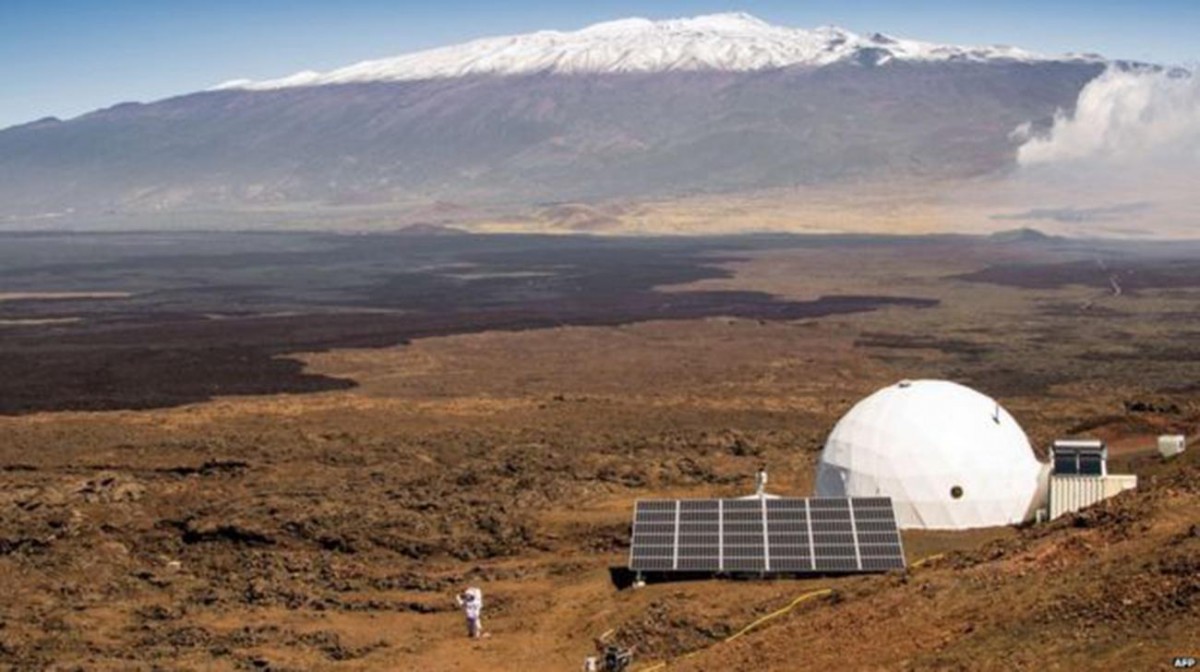Let’s drive across country, Dad said. It will be fun, Dad said. Two days in you’re squirming in your seat and your siblings are driving you nuts. A week-long road trip is bad enough, but imagine taking a trip for 18 months. That’s how long a round-trip mission to Mars could take. The challenge of making such a mission succeed isn’t just about engineering, it’s also about psychology.
To study the psychological challenges of such a mission, NASA has begun an isolation study with a crew of 6 who will spend a year in a dome not 12 meters wide. If that isn’t bad enough, the team will have no fresh food and no fresh air. If they want to step outside for a bit to calm down, they’ll have to do it in a space suit. Nothing like a bit of stir crazy in the name of science.
From earlier experiments we know conflicts will arise. The purpose of the study is not to spend a year without conflicts, but rather to study what causes them and how they can best be resolved. What we learn with the study will play a vital role in the success of a future Mars mission. We already know how to build spacecraft capable of traveling to Mars, and we know how to build habitats in space and in remote regions like Antarctica.
But the road trip to Mars is very long, and there aren’t any rest areas along the way.












Comments
Are there any publicly-available reports of previous attempts at long-term isolation in astronaut-level folks who did have conflicts? I’m curious what the post-analysis on that would have been.
In the branch of psychology known as Organizational Behavior, one school of thought is that attempting to resolve conflict is wasted effort. Better to understand that conflict is inevitable, and the effort should go into managing it.
Who would want to visit that cold, red desert on Mars, much less live there? Count me out.